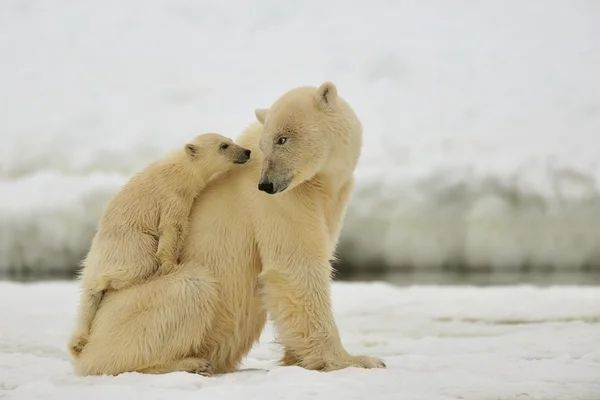- A
- A
- A
- ABC
- ABC
- ABC
- А
- А
- А
- А
- А
- HSE University
- Faculty of World Economy and International Affairs
- School of International Regional Studies
- International cooperation in the Arctic region and the Northern Sea Route: sustainable development, challenges and prospects
-
School
-
Online
International cooperation in the Arctic region and the Northern Sea Route: sustainable development, challenges and prospects
About the Project
This project is a logical continuation and development of the first international project "The Arctic as a zone of cooperation and a zone of competition", successfully implemented by the School of International Regional Studies in 2021/2022. The new 2022/2023 project is focused on the research direction and is international, regional and interdisciplinary one. It is implemented in cooperation with the University of Oslo (Norway) (UiO), School of Environmental Sciences, Mahatma Gandhi University (India), Far Eastern Federal University (FEFU) and the Arctic Economic Council.
The Arctic has been and remains one of the most interesting international regions, both in terms of its constituent institutions and the nature of the interaction of countries within it. Up until the beginning of 2022, cooperation in the Far North seemed to be one of the most stable among all possible. But the current geopolitical trends bring with them a number of new challenges that raise the relevance of international cooperation in the Arctic to a new even higher level, and stimulate the search for an optimal model of cooperation in the Arctic region. The current geopolitical situation is characterized by the urgency of building flexible formats of interaction. The appearance on the world political map of a significant number of centers of power, differing in the degree of development of information technology, military, and economic potentials, creates additional requirements for leading players in the field of maintaining stable ties, including in the Arctic region. In turn, the importance of the Northern Sea Route continues to grow every day, and even opinions are beginning to meet that in the near future it will be able to compete with such serious international transport corridors as the Suez Canal and the Panama Canal. At the same time, to date, many issues related to the effective management of the resources of this region, issues of environmental safety and conservation of this region, issues of the international legal regime of both the Arctic itself and the Northern Sea Route are still largely open and debatable.
The project format allows students not only to develop multilaterally and gain experience in writing scientific texts, but also helps to establish contacts with colleagues from Russian and foreign universities. Project participants can work both individually and in collaboration with each other.
Since the project is not only international, but also interdisciplinary, students can choose any topic related to legal, environmental, economic, political and other aspects of the functioning of this region for their scientific research.
Within the framework of the project, participants will prepare a literature review on the proposed issues; will have the opportunity to listen to lectures by invited speakers-specialists in the field of the Arctic and the Northern Sea Route; will make a presentation on selected research areas and prepare scientific publications.
The project will result in two international round tables where the project participants will present the results of their research to a group of scientists and experts from Russia, Norway, Iceland and other countries
The project will be implemented in Russian and English language.
The purpose of this project is to conduct scientific research in the field of political, economic, environmental, legal and other issues related to the Arctic region, its history and place on the geopolitical map of the world and in the system of international relations, as a result of which students will develop knowledge and research skills in the field of the Arctic region and the Northern Sea Route. The implementation of the project will contribute to the strengthening of international scientific ties between Russia and foreign universities and international organizations, as well as the acquisition of experience by students in conducting international scientific projects.

Project News:
On October 7, 2022
October 7, 2022 within the framework of the international student research project "International cooperation in the Arctic and the Northern Sea Route: sustainable development, challenges and prospects" conducted in the 2022/2023 academic year by the School of International Regional Studies of the Faculty of World Economy and World Politics of the National Research University "Higher School of Economics" under the guidance of associate professor of the School of International Regional Studies Irina Strelnikova and a research associate Olga Kharinf in cooperation with the University of Oslo (Norway) (UiO), Novosibirsk State University, the Federal Far Eastern University and the Arctic Economic Council (Arctic Economic Council), a meeting of participants and international partners of the project was held in a distant format. Within the framework of this meeting, the main outlines of the project were fixed, areas of research in the Arctic were identified.
On October 18, 2022
On October 18, 2022, the project hosted a lecture by Alla Pozdnyakova, Professor of the Faculty of Law of the Scandinavian Institute of Maritime Law, University of Oslo (Norway) on the topic "International Law and the Arctic". The lecture is devoted to the legal status of the Arctic in the context of new geopolitical realities.
On October 28, 2022
On October 28, 2022, within the framework of the international student research project "International cooperation in the Arctic and the Northern Sea Route: sustainable development, challenges and prospects", a regular lecture was held by invited speakers of the project Elena Adasheva, a socianthropologist from Yale University, and Louise Brodt, a senior lecturer from Novosibirsk State University, on the topic "Science Diplomacy in the Arctic”. Louise Brodt and Elena Adasheva are also researchers at the Stanford US-Russia Forum as part of the Arctic Policy working group, where their research project is devoted to issues of Arctic scientific diplomacy between the United States and Russia.
On November 17, 2022,
On November 17, 2022, a lecture was held by the expert and senior researcher at Gateway House India, Amit Bhandari, on the topic “India, Russia and the Arctic” At the lecture, the expert spoke about the opportunities for cooperation in the Arctic in the energy sector. India is interested in new projects launched by the Russian side. The problem area in this context is logistics. Amit Bhandari talked to the project participants and answered numerous questions.
On December 7, 2022
On December 7, 2022, a lecture was given by the Doctor of Economics, Associate Professor, Professor of the Department of Environmental Economics of the Faculty of Economics of Lomonosov Moscow State University, Director of the Center for Economic Problems of Arctic Development at the Faculty of Economics of Lomonosov Moscow State University Sergey Mikhailovich Nikonorov, entitled "Comparison of ESG and Sustainable Development approaches to the analysis of Companies and regions of the Russian Arctic". Sergey Mikhailovich highlighted the features of ESG approaches and talked about what the principles of sustainable development of the northern regions are. During the lecture, modern approaches to the development of the Arctic were considered. The lecturer also answered the questions of the project participants and suggested topics for future research to young scientists
HSE University Supervisors
Research Fellow
Research Fellow
Far Eastern Federal University

Novosibirsk, Russia

Senior Lecturer in Environmental Economics at Novosibirsk State University
Specialization: Arctic offshore oil and gas resources, energy security.
Norway


Advisor, Arctic Economic Council
Iceland

List of Participants

























- About
- About
- Key Figures & Facts
- Sustainability at HSE University
- Faculties & Departments
- International Partnerships
- Faculty & Staff
- HSE Buildings
- HSE University for Persons with Disabilities
- Public Enquiries
- Studies
- Admissions
- Programme Catalogue
- Undergraduate
- Graduate
- Exchange Programmes
- Summer Schools
- Semester in Moscow
- Business Internship
- © HSE University 1993–2025 Contacts Copyright Privacy Policy Site Map
- Edit





